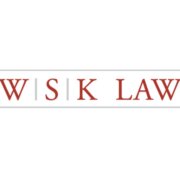Best Communications & Media Law Lawyers in Cambridge
Share your needs with us, get contacted by law firms.
Free. Takes 2 min.
List of the best lawyers in Cambridge, Canada
About Communications & Media Law in Cambridge, Canada
Communications and media law in Cambridge, Canada focuses on the legal principles that govern how information is created, distributed, and consumed through various forms of media and communication channels. This area of law covers traditional media like newspapers, radio, and television, as well as newer digital platforms such as social media, blogs, podcasts, and streaming services. The field addresses issues including freedom of expression, privacy, defamation, copyright, advertising, broadcasting regulations, and telecommunications infrastructure. Given the rapid evolution of technology and communication platforms, the legal landscape is complex and constantly changing, making it critical for individuals and organizations to understand their rights and responsibilities.
Why You May Need a Lawyer
There are several situations where seeking professional legal advice in communications and media law becomes essential in Cambridge, Canada. Common scenarios include:
- Defending against or pursuing a defamation claim involving statements made in print, broadcast, or online media
- Protecting intellectual property rights, such as copyright for original content or trademarks for brands
- Navigating privacy concerns, particularly regarding the collection, use, or distribution of personal information
- Ensuring compliance with advertising standards and regulations for commercial communications
- Dealing with regulatory bodies regarding broadcasting or telecommunications licenses and obligations
- Responding to challenges relating to freedom of expression or censorship
- Negotiating and drafting contracts for content creators, journalists, or media outlets
- Resolving disputes arising with media companies or collaborators
- Handling issues related to access to information or public records
- Understanding obligations under anti-spam legislation for electronic marketing
Local Laws Overview
Cambridge is subject to federal and provincial laws governing communications and media, though some issues may have unique local nuances. The Broadcasting Act, Telecommunications Act, and the Canadian Radio-television and Telecommunications Commission (CRTC) regulate broadcast and telecommunications sectors nationwide, including Cambridge. Defamation is primarily regulated under Ontario’s libel and slander laws, while privacy and data protection fall under statutes such as the Personal Information Protection and Electronic Documents Act (PIPEDA) and the Freedom of Information and Protection of Privacy Act (FIPPA). Copyright is governed federally, but enforcement and disputes may be local. Cambridge businesses and individuals must also pay attention to advertising regulations overseen by the Competition Bureau and Advertising Standards Canada, as well as compliance with the Canadian Anti-Spam Legislation (CASL). Local by-laws may affect media operations, such as permitting for filming or signage regulations.
Frequently Asked Questions
What types of media are covered under communications and media law in Cambridge, Canada?
Communications and media law covers all forms of mass communication, including print, broadcast (radio and television), digital media (websites, podcasts, blogs), and social media platforms. It also includes telecommunications services such as internet, phone, and broadcasting distribution.
What is considered defamation, and how can I protect myself?
Defamation occurs when a false statement is made about someone that damages their reputation. In Ontario, defamation can be written (libel) or spoken (slander). Defending against defamation claims often requires demonstrating that the statement was true, an honest opinion, or made under privilege. Legal advice is critical if you face such concerns.
Who regulates broadcasting and telecommunications in Cambridge?
The Canadian Radio-television and Telecommunications Commission (CRTC) is the national regulatory authority responsible for overseeing broadcasting and telecommunications in Cambridge and across Canada. They issue licenses, set standards, and enforce compliance.
What privacy laws apply to media and communications activities?
The Personal Information Protection and Electronic Documents Act (PIPEDA) sets out rules for the collection, use, and disclosure of personal information in the course of commercial activities. If you handle personal data through media or communications operations, compliance with these laws is required.
Can I use someone else’s content or images in my blog or social media?
Using content created by others without permission may violate copyright laws. You should obtain a license or permission, or use materials that are in the public domain or licensed for reuse, such as under Creative Commons.
What are the rules for advertising in Cambridge, Canada?
Advertising is regulated by federal law through the Competition Bureau and Advertising Standards Canada. Advertisers must avoid false or misleading claims, disclose material terms, and comply with industry standards. Electronic marketing must also comply with anti-spam legislation.
What should I do if I receive a cease-and-desist letter over online content?
You should take such letters seriously and consult a lawyer before responding. A legal professional can evaluate the claim’s validity, advise on your rights, and help you determine the appropriate course of action.
Are social media posts subject to the same laws as traditional media?
Yes, social media posts can be subject to the same defamation, copyright, and privacy laws as newspapers or television broadcasts. Being online does not absolve individuals or organizations from legal responsibilities.
How do I respond to negative or false online reviews about my business?
While consumers have the right to share opinions, false statements that harm your business’s reputation may be actionable. A lawyer can advise on whether a review constitutes defamation and outline appropriate remedies, including requesting removal or pursuing legal action.
Do I need a permit to film or take photographs in public spaces in Cambridge?
For personal use, a permit is generally not needed. However, for commercial filming or photography, you may need permits from the City of Cambridge and may have to comply with local by-laws, especially if you are using equipment or disrupting public spaces.
Additional Resources
For further information and assistance, you may consult the following resources and organizations:
- Canadian Radio-television and Telecommunications Commission (CRTC) - oversight of broadcasting and telecommunications
- Office of the Privacy Commissioner of Canada - information on privacy rights
- Canadian Intellectual Property Office - guidance on copyright, trademarks, and patents
- Advertising Standards Canada - industry standards for advertising practices
- Competition Bureau - rules regarding misleading advertising
- City of Cambridge - information on permits for media production and local by-laws
- Law Society of Ontario - to find licensed lawyers specializing in communications and media law
- Ontario Ministry of the Attorney General - public legal information related to defamation and freedom of information
Next Steps
If you believe you have a legal issue in communications and media law or need advice to stay compliant in Cambridge, Canada, consider taking these steps:
- Document all relevant details and communications connected to your issue
- Identify the specific area of concern, such as defamation, copyright, privacy, or advertising
- Contact a qualified lawyer specializing in communications and media law in Ontario
- Prepare any supporting documentation or evidence for your consultation
- Stay informed by reviewing reputable resources and recent updates in the law
- Do not ignore legal correspondence or deadlines; consult a professional promptly
Seeking legal advice early can help protect your rights, prevent costly mistakes, and ensure you have clear guidance in navigating the complexities of communications and media law in Cambridge, Canada.
Lawzana helps you find the best lawyers and law firms in Cambridge through a curated and pre-screened list of qualified legal professionals. Our platform offers rankings and detailed profiles of attorneys and law firms, allowing you to compare based on practice areas, including Communications & Media Law, experience, and client feedback.
Each profile includes a description of the firm's areas of practice, client reviews, team members and partners, year of establishment, spoken languages, office locations, contact information, social media presence, and any published articles or resources. Most firms on our platform speak English and are experienced in both local and international legal matters.
Get a quote from top-rated law firms in Cambridge, Canada — quickly, securely, and without unnecessary hassle.
Disclaimer:
The information provided on this page is for general informational purposes only and does not constitute legal advice. While we strive to ensure the accuracy and relevance of the content, legal information may change over time, and interpretations of the law can vary. You should always consult with a qualified legal professional for advice specific to your situation.
We disclaim all liability for actions taken or not taken based on the content of this page. If you believe any information is incorrect or outdated, please contact us, and we will review and update it where appropriate.










